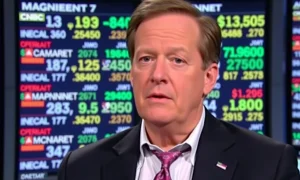Investors worldwide anxiously await Federal Reserve announcements, knowing each **Fed decision** directly shapes stock market trajectories and portfolio values. Consequently, understanding these monetary policy moves becomes crucial for strategic investment planning.
How Fed Policy Directly Influences Stock Valuations
The Federal Reserve’s interest rate decisions fundamentally alter market dynamics. Firstly, higher rates increase borrowing costs for companies. Subsequently, this reduces corporate profits and expansion capabilities. Moreover, rising rates make bonds more attractive relative to stocks. Therefore, investors often shift allocations from equities to fixed income.
Market Reaction Patterns to Fed Announcements
Historical data reveals consistent patterns following **Fed decision** announcements. Typically, markets experience immediate volatility spikes. However, long-term trends depend on economic context. For instance, rate cuts during downturns often boost stocks. Conversely, rate hikes during expansions may cause temporary declines.
Sector-Specific Impacts of Monetary Policy Changes
Different market sectors respond uniquely to Federal Reserve actions. Notably:
• **Technology stocks** often suffer from higher rates due to reduced future earnings valuations
• **Banking stocks** frequently benefit from wider interest margins
• **Real estate investments** typically decline with mortgage rate increases
• **Consumer discretionary stocks** may weaken as borrowing costs rise
Strategic Investment Approaches During Policy Shifts
Sophisticated investors develop strategies around Federal Reserve cycles. They monitor economic indicators like inflation and employment data. Additionally, they analyze Fed communication for policy clues. Furthermore, they maintain diversified portfolios to mitigate **Fed decision** volatility risks.
Long-Term Market Performance Post-Fed Decisions
Research shows markets eventually normalize after initial reactions. Importantly, economic fundamentals ultimately drive long-term returns. However, Fed policy remains a significant intermediate-term influence. Thus, investors should focus on quality assets despite short-term fluctuations.
FAQs: Federal Reserve Decisions and Stock Markets
How quickly do stock markets react to Fed decisions?
Markets typically react within minutes of announcements, with most price movement occurring within the first trading session.
Do all Fed meetings affect stocks equally?
No, markets focus most on meetings with updated economic projections and press conferences, particularly quarterly meetings.
Can investors predict Fed decisions accurately?
While Fed futures markets provide probabilities, unexpected economic data often leads to surprises, making perfect prediction impossible.
How do international stocks respond to U.S. Fed decisions?
Global markets frequently mirror U.S. reactions due to interconnected economies and dollar dominance in international finance.
Should retail investors change strategies based on Fed meetings?
Most experts recommend maintaining long-term strategies rather than making abrupt changes based on single events.
What economic indicators most influence Fed decisions?
The Fed primarily monitors inflation data, employment figures, GDP growth, and consumer spending patterns when determining policy.








